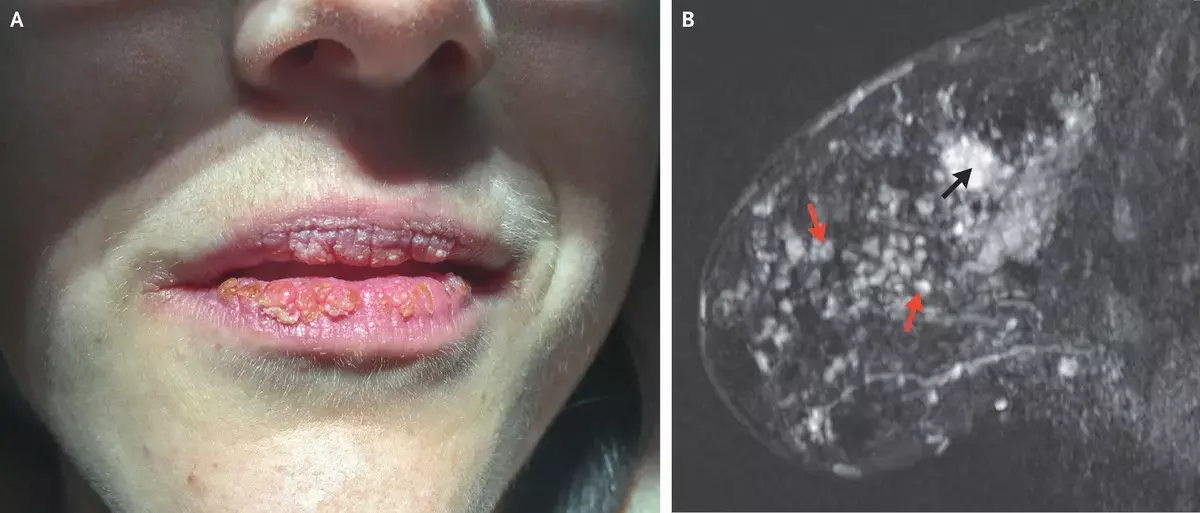- Home
- Medical news & Guidelines
- Anesthesiology
- Cardiology and CTVS
- Critical Care
- Dentistry
- Dermatology
- Diabetes and Endocrinology
- ENT
- Gastroenterology
- Medicine
- Nephrology
- Neurology
- Obstretics-Gynaecology
- Oncology
- Ophthalmology
- Orthopaedics
- Pediatrics-Neonatology
- Psychiatry
- Pulmonology
- Radiology
- Surgery
- Urology
- Laboratory Medicine
- Diet
- Nursing
- Paramedical
- Physiotherapy
- Health news
- Fact Check
- Bone Health Fact Check
- Brain Health Fact Check
- Cancer Related Fact Check
- Child Care Fact Check
- Dental and oral health fact check
- Diabetes and metabolic health fact check
- Diet and Nutrition Fact Check
- Eye and ENT Care Fact Check
- Fitness fact check
- Gut health fact check
- Heart health fact check
- Kidney health fact check
- Medical education fact check
- Men's health fact check
- Respiratory fact check
- Skin and hair care fact check
- Vaccine and Immunization fact check
- Women's health fact check
- AYUSH
- State News
- Andaman and Nicobar Islands
- Andhra Pradesh
- Arunachal Pradesh
- Assam
- Bihar
- Chandigarh
- Chattisgarh
- Dadra and Nagar Haveli
- Daman and Diu
- Delhi
- Goa
- Gujarat
- Haryana
- Himachal Pradesh
- Jammu & Kashmir
- Jharkhand
- Karnataka
- Kerala
- Ladakh
- Lakshadweep
- Madhya Pradesh
- Maharashtra
- Manipur
- Meghalaya
- Mizoram
- Nagaland
- Odisha
- Puducherry
- Punjab
- Rajasthan
- Sikkim
- Tamil Nadu
- Telangana
- Tripura
- Uttar Pradesh
- Uttrakhand
- West Bengal
- Medical Education
- Industry
Rare case of Cowden syndrome reported in NEJM

Dr Sébastien Molière and Dr Carole Mathelin at Hôpital de Hautepierre, Strasbourg, Frances have reported an unusual case of Cowden syndrome.The case has been published in the New England journal of Medicine.
Cowden syndrome is a disorder characterized by multiple noncancerous, tumor-like growths called hamartomas and an increased risk of developing certain cancers.
Hamartomas are most commonly found on the skin and mucous membranes , but they can also occur in the intestine and other parts of the body. The growth of hamartomas on the skin and mucous membranes typically becomes apparent by a person's late twenties.
Some people have some of the characteristic features of Cowden syndrome, particularly the cancers associated with this condition, but do not meet the strict criteria for a diagnosis of Cowden syndrome. These individuals are often described as having Cowden-like syndrome.
According to the history,32-year-old woman presented to the outpatient breast clinic with a several-month history of multiple tender breast lumps. She had no notable personal or family medical history. The physical examination revealed clustered papular growths on the lips (Panel A), which she reported had been present since childhood. On breast examination, there were multiple smooth, firm, and mobile lumps in both breasts as well as a 2-cm, painless, indurated mass in the upper medial quadrant of the right breast. Mammography showed dense breasts with multiple cysts. Magnetic resonance imaging confirmed a mass in the right breast (Panel B, black arrow) and multiple smaller lesions consistent with papillomas (red arrows). Biopsy results were consistent with estrogen receptor–positive invasive ductal carcinoma that was negative for human epidermal growth factor receptor 2; multiple intraductal papillomas were also present. Since the Cowden syndrome was suspected, genetic testing was performed and showed an inactivating mutation in the tumor-suppressor gene encoding phosphatase and tensin homologue (PTEN). The Cowden syndrome, an autosomal dominant PTEN hamartoma syndrome, is associated with an increased risk of breast, thyroid, endometrial, and other cancers. Oral mucosal papillomas are commonly associated skin lesions. The patient underwent modified radical mastectomy of the right breast and prophylactic mastectomy of the left breast. In addition to genetic counseling, cancer surveillance is an important focus of treatment for patients with the Cowden syndrome.
For further reference log on to:
DOI: 10.1056/NEJMicm1910478
Dr Kamal Kant Kohli-MBBS, DTCD- a chest specialist with more than 30 years of practice and a flair for writing clinical articles, Dr Kamal Kant Kohli joined Medical Dialogues as a Chief Editor of Medical News. Besides writing articles, as an editor, he proofreads and verifies all the medical content published on Medical Dialogues including those coming from journals, studies,medical conferences,guidelines etc. Email: drkohli@medicaldialogues.in. Contact no. 011-43720751


